Table Of Content
Wix and Shopify: Which Platform is Right for You [2024]
![Wix vs. Shopify - Which is better? [2023 Comparison] - The4™ Free & Premium Shopify Theme](http://the4.co/cdn/shop/articles/image3_d050006f-39b7-4b7b-a7ad-72c81f63fb99_1100x.png?v=1692675713)
In the world of eCommerce platforms, two names that consistently rise to the top are Wix and Shopify. Both are popular and have their strengths, but depending on your specific needs and objectives, one might serve your business better than the other.
In this article, we will embark on a comprehensive comparison of Wix and Shopify, delving into their key differences across several important parameters. By the end, you'll have a clear picture of these two platforms, enabling you to make an informed choice for your online business endeavors.
Overview of Shopify and Wix
What is Shopify?

Shopify is a leading e-commerce platform designed to help businesses set up online stores and sell products. It's a subscription-based software that allows anyone to set up an online store and sell their physical or digital products.
Founded in 2006, Shopify provides a range of services, including payments, marketing, shipping, and customer engagement tools, to simplify running an online store for small merchants. Its user-friendly system allows store owners to customize their storefronts, organize their products, track orders, and manage inventory, among many other things.
Moreover, it comes with various themes and apps that you can install to enhance the functionality of your store. You can also sell your products directly on social media platforms or marketplaces, thanks to its integrations.
According to BuiltWith, there are now over 4.12 million e-commerce websites built using Shopify.
What is Wix?
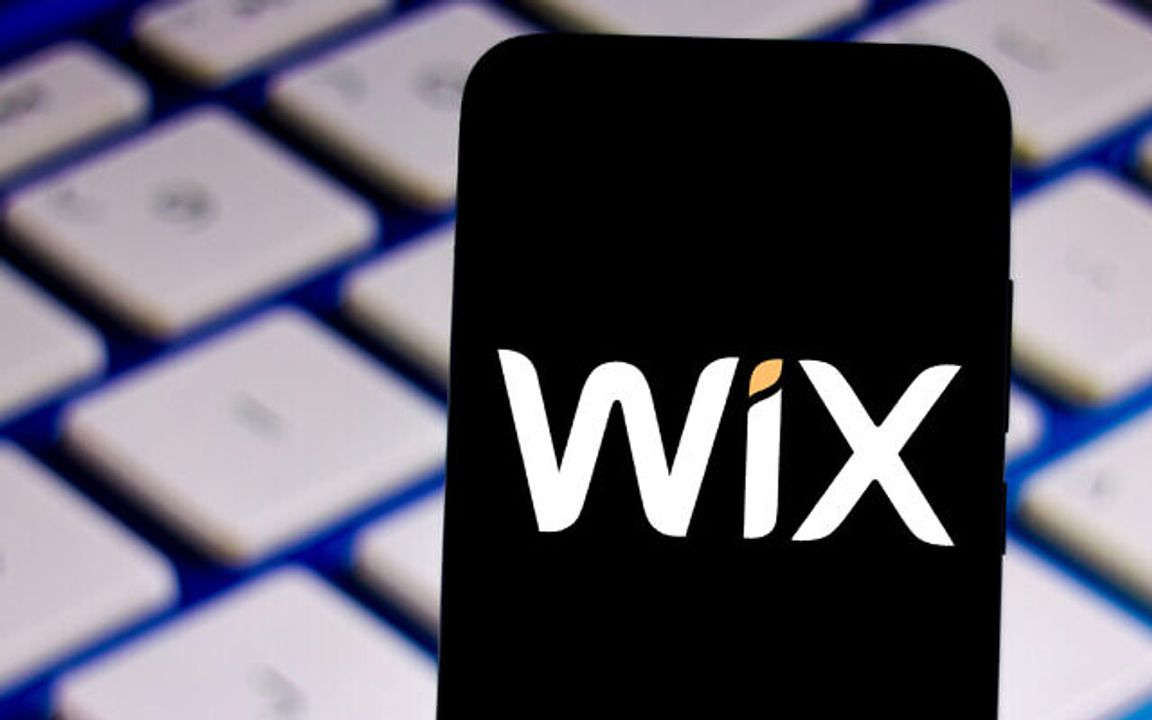
Established in 2006 by Avishai Abrahami, Nadav Abrahami, and Giora Kaplan, Wix set out to simplify website creation, making it accessible to individuals irrespective of their technical knowledge. Their intuitive, drag-and-drop builder quickly garnered popularity, and by 2024, Wix claimed over 200 million users worldwide.
Wix's primary audience extends beyond developers. The platform appeals to creators who wish to share their passions and turn their ideas into reality without dealing with complex coding or sign-up processes.
In summary, Wix's mission is to democratize website creation, offering a user-friendly platform that empowers individuals to bring their visions to life online.
10 Key Differences between Shopify and Wix
Pricing
* Shopify:
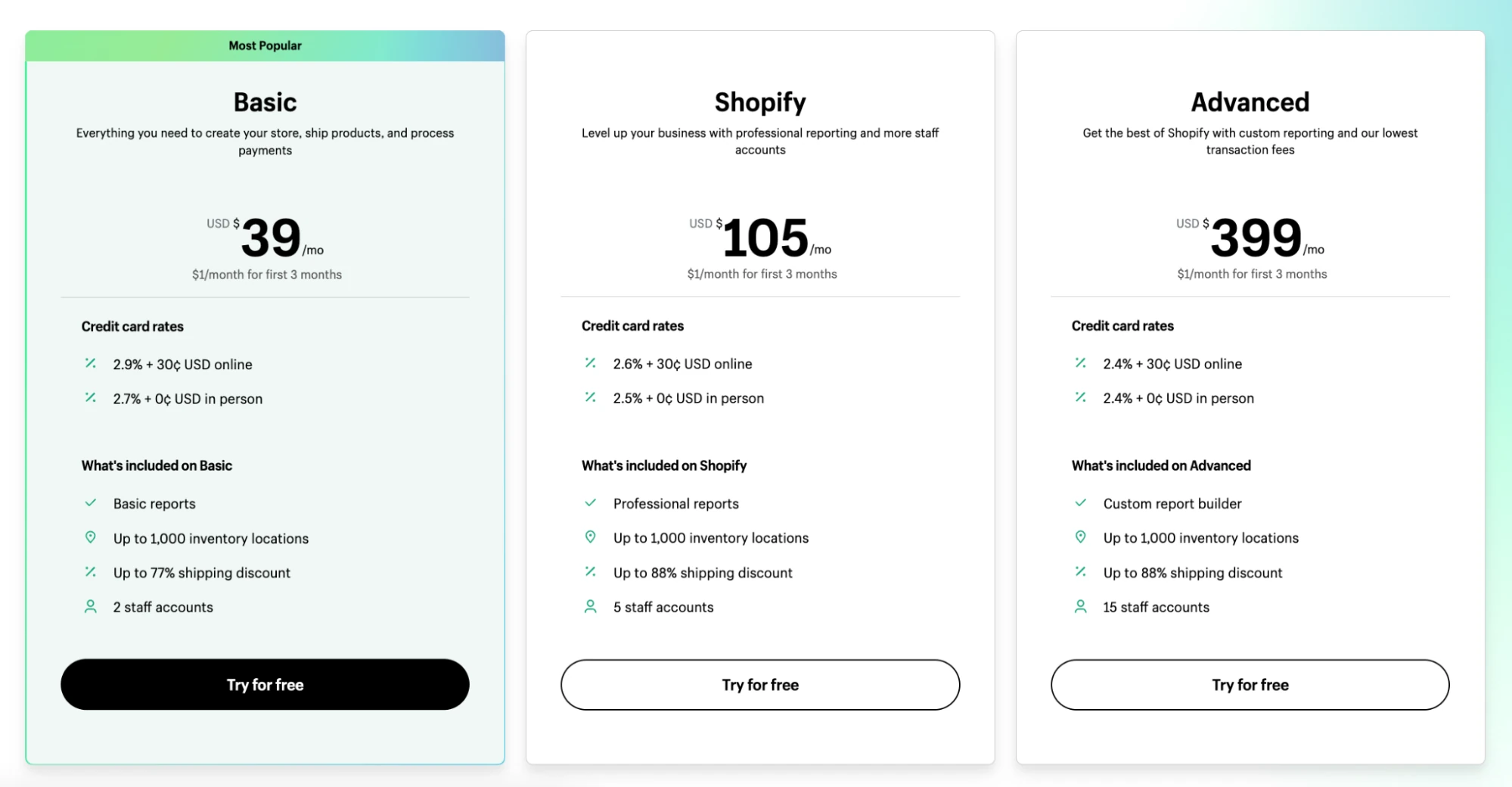
While Shopify's pricing tiers may initially seem steep compared to some of its competitors, they offer a diverse range of options tailored to various needs and business sizes.
- Shopify Starter Plan - $5/month: This plan is a streamlined option ideal for those looking to sell through multiple channels like social media, SMS, and email. You can manage your business performance through the Shopify dashboard without the hassle of building a full-fledged store.
- Basic Shopify Plan - $39/month: This provides all the essential eCommerce functionalities, making it a great fit for those who are just getting their business off the ground or looking to maintain a simple online store.
- Standard Shopify Plan - $105/month: This takes your business a notch higher by offering additional benefits such as professional sales report features and support for global selling, among other things.
- Advanced Shopify Plan - $399/month: This provides the full suite of advanced features, enabling medium to large businesses to accelerate their growth.
While a 3-day free trial is available to test the waters, Shopify is currently offering an exclusive deal where you can access their services for just $1 for the first three months.
* Wix:
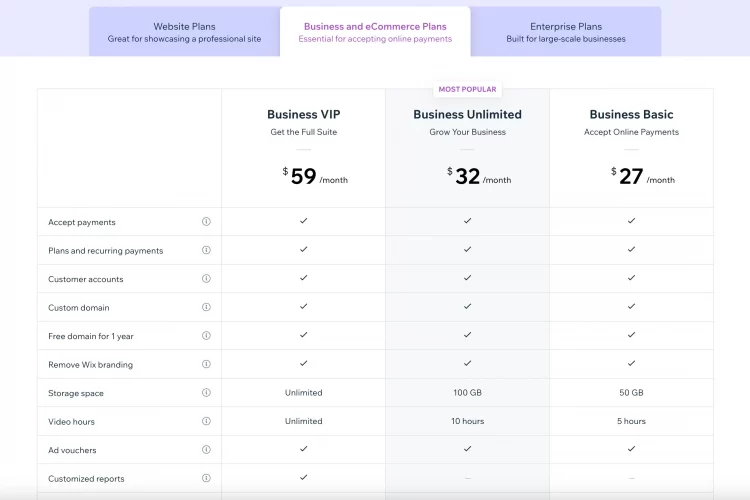
Wix eCommerce currently offers three subscription tiers, with prices ranging from $27 to $59 per month.
- Business Basic Plan - $27/month: This is aimed at merchants just entering the business world, providing them with a toolkit to start their online sales journey. This includes unlimited bandwidth, a free annual domain, sales analytics, and reporting, among other features.
- Business Unlimited Plan - $32/month: This builds on the Basic plan's offerings with additional storage, pro eCommerce features, and a professional logo. It also throws in more advanced tools such as tax calculators, support for dropshipping, multi-currency functionality, and more.
- Business VIP Plan - $59/month: This offers all the benefits of the Unlimited plan along with priority customer support. This ensures your queries on Wix’s answer page appear first, and your phone calls get promptly attended. Another major advantage of this plan is access to in-depth reports, aiding in data-driven decision-making for your business.
Ease of use
* Shopify
While Shopify's interface is separated into dashboard and editing systems, requiring users to switch between the backend and the preview to check the front-end interface, this division could potentially extend the time it takes to perfect the layout of your site.
However, Shopify compensates for this by providing an assortment of pre-designed templates, making setting up an attractive and professional storefront easier. Once this is done, adding products and kickstarting your sales becomes a breeze.
This setup is particularly beneficial for medium-to-large enterprises, as the ready-made templates significantly streamline the process. Therefore, if your plans involve scaling up your business, Shopify's ease of use could be a deciding factor in its favor.
* Wix
In terms of usability, Wix shines with a highly intuitive interface designed to help you build your store effortlessly. Once the initial setup is done, crafting a successful Wix store becomes a smooth process.
Based on first-hand experience, Wix's drag-and-drop feature enables merchants to manage all content on the front-end interface. Whether it's an image, title, or logo, you can simply click and drag it to your desired location. This feature proves to be a godsend for users with minimal technical knowledge, offering convenience and a pain-free experience.
But the user-friendliness continues beyond there. Wix has leveraged artificial intelligence technologies, namely Wix ADI and Wix Editor, to assist users right from the initial steps of creating their online store. The level of support and convenience these tools offer significantly enhances the ease of use when building a store with Wix.
Templates & Customizability
Both Shopify and Wix understand the value of a captivating storefront in driving sales. They offer an extensive array of responsive themes and templates catering to diverse business requirements.
Moreover, they allow custom edits, enabling users to tailor their website using provided coding languages. Now, let's delve into a detailed comparison of these two platforms regarding templates and customizability.
* Shopify:
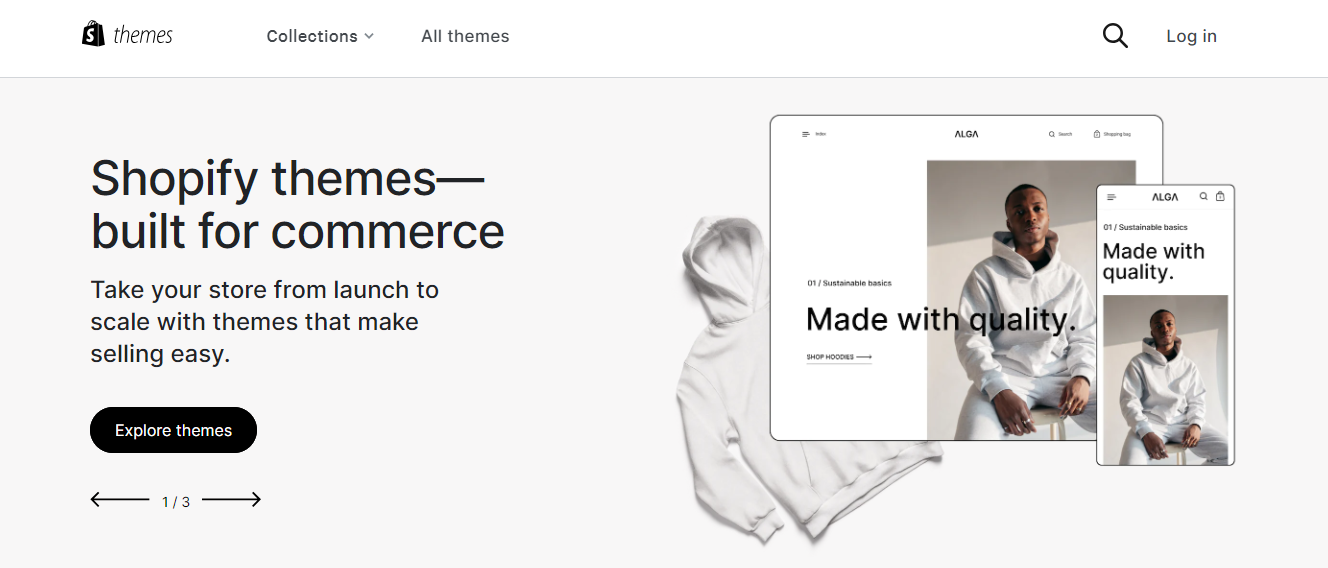
Unlike Wix, which offers many free templates, Shopify takes a more specialized approach. The platform offers over 130 premium themes designed specifically for online stores. The prices for these themes range between $140 and $350. This might seem like a significant investment, but the value these themes provide in terms of aesthetics and functionality justifies the cost.
For businesses looking to add a personal touch or unique functionality to their stores, Shopify provides a solution in the form of Liquid, its own template language. This allows users to modify the underlying code of the themes, enabling more complex customizations. As a result, businesses can create a storefront that accurately represents their brand and caters to their specific needs.
Read more: Top 21 Best Shopify Themes on Theme Forest
* Wix:
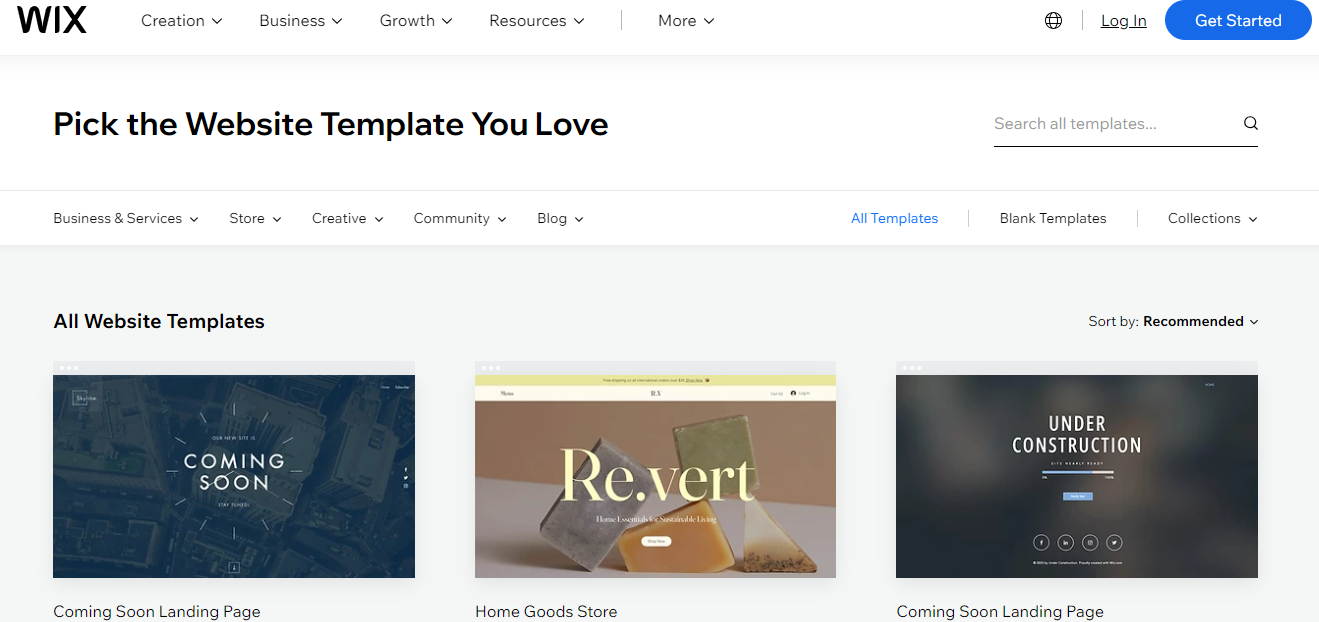
In contrast, Wix offers over 120 eCommerce-specific templates at no cost, enabling businesses to create functional and appealing storefronts without the financial burden. Beyond this, Wix boasts an impressive total of over 800 templates, catering to various website types, not just eCommerce.
For businesses seeking to create a compelling online presence quickly, Wix provides three built-in design tools: Wix Editor X, Wix ADI, and Editor. These tools make the design process faster and more straightforward, even for those with limited technical or design expertise.
In terms of advanced customization, both Shopify and Wix offer the ability to make custom edits using HTML and CSS, giving users the freedom to craft a unique and personalized digital presence. Wix further enhances this capability with Velo, a platform that allows users to customize a range of website features, from web applications to page scrolling. Accessible through the Wix Editor, Velo puts total control over your website's appearance and functionality right at your fingertips.
Apps
Both Wix and Shopify recognize the immense value that integrations can bring to an online store. By offering a variety of apps, they empower business owners with additional tools and functionalities to enhance their store's performance. Both platforms feature app stores brimming with numerous free and paid apps aimed at facilitating eCommerce operations in diverse regions. Let's delve into a detailed comparison of their offerings.
* Shopify Apps:
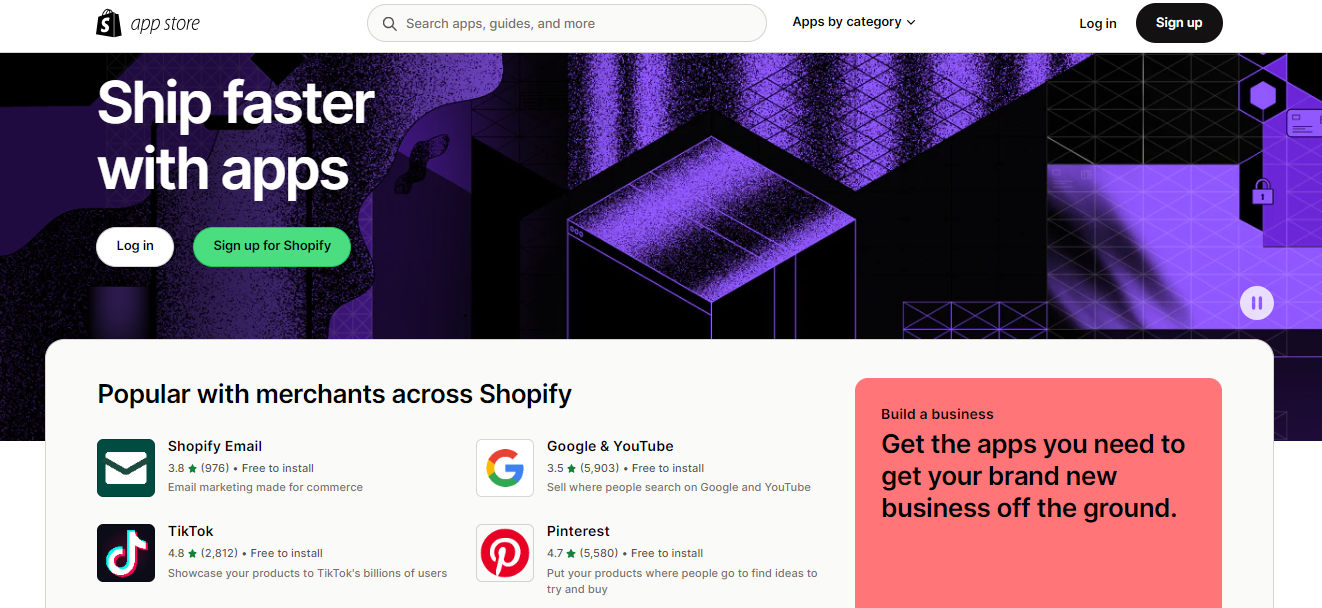
The Shopify App Store stands out with its impressive breadth of functionality, providing an avenue for business owners to expand their operations significantly. Boasting a total of more than 8,000 apps, including third-party applications, Shopify provides solutions for almost every aspect of online selling, from no-code file uploading apps to tools for sending customized push notifications. Take, for instance, the EComposer - a top-notch Shopify Page Builder app that simplifies website creation, or Avada SEO, a powerful tool to amp up your search engine optimization efforts.
Understanding the importance of usability, Shopify has neatly organized these apps into 12 categories and nine collections, making it simpler for users to find the most suitable apps for their needs.
Read more:
17+ Shopify Free Apps You Must Try
* Wix Apps:
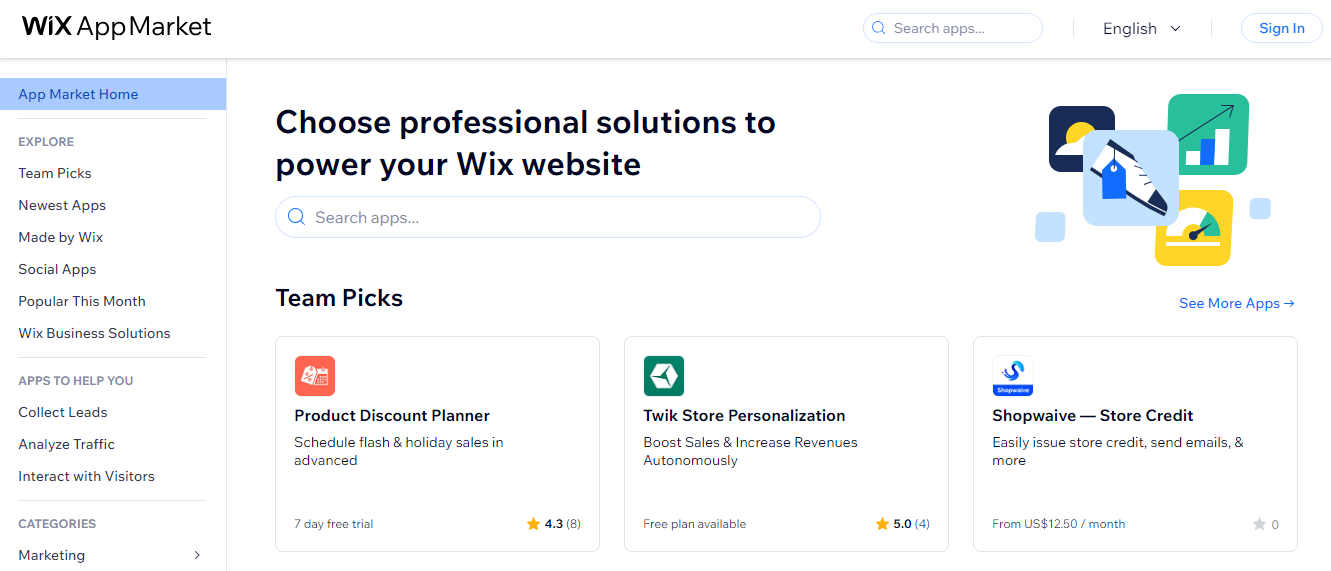
Comparatively, Wix's app selection is somewhat smaller, with over 200 apps and add-ons. These applications are grouped into six main categories: marketing, selling online, services & events, media & content, design elements, and communication.
Despite the smaller selection, Wix does offer a variety of free apps for users to choose from. Furthermore, their paid apps are reasonably priced, ranging from $5 to $30, making them accessible to businesses of all sizes.
eCommerce features
|
Feature |
Shopify |
Wix |
|
Inventory Management |
Comprehensive system with automated alerts, reports, and real-time sync with Shopify POS. |
Automatic and manual tracking supports individual SKU tracking for product variants. |
|
Reports and Analytics |
Upgradable and customizable reporting features allow deep analysis of store activities. |
Adjustable reports focusing on website traffic, revenue, customer behavior, and conversion rates. |
|
Payment Methods |
Shopify Payments (no transaction fees) supports other processors (with transaction fees). |
Wix Payments (secure online payments) supports traditional payment processors. |
|
Shipping Options |
Comprehensive shipping options offer third-party calculated rates for Advanced Shopify users. |
Requires shipping apps for global payments, no printable shipping labels. |
|
Dropshipping Support |
Available on all plans, it uses third-party apps for drop-shipping. |
Available only on Business Unlimited or Business VIP plans, it uses third-party apps for drop-shipping. |
|
POS |
Offers POS solutions on all plans except Shopify Starter and supports in-person transactions. |
It has its own POS system, available only for certain US-based merchants. |
|
Mobile App |
Available for both Android and iOS users, it allows store management on the go. |
Available for both Android and iOS users, it allows store management on the go. |
Loading speed
An optimum website loading speed is paramount in providing a seamless user experience. A site should ideally load in under 3 seconds to prevent website abandonment. In this regard, let's examine the performance of Wix and Shopify to discern which platform outperforms the other.
* Shopify Loading Speed:
In my evaluation, Shopify is a highly commendable alternative to Wix in terms of performance. It ranks as the second-fastest platform in various tests. Shopify shines particularly in mobile load speeds, a crucial factor in retaining customers' attention where it matters the most - on your site.
Darren's performance test reveals a remarkable average load time of 1.3 seconds for Shopify! This indicates Shopify's clear edge over Wix in loading time, an essential factor for the success of any website, especially an eCommerce one.
* Wix Loading Speed:
However, Wix isn't far behind. Wix provides specific guidelines to help users optimize their site's structure and performance, enhancing elements like text, animation, and images.
By following Wix's recommendations, you can achieve a site loading speed of 85% to 90%. You can also refer to Wix's best practices to further improve your site's performance.
SEO & Marketing
|
Shopify |
Wix |
|
|
Email Marketing |
Built-in email tool for product promotion and updates, with editable templates and campaign reports. |
High-quality email marketing with various templates allows the creation of custom templates. |
|
SEO Features |
Adequate and effective SEO features, but certain URLs bear mandatory strings. Cannot modify Robots.txt file and Sitemap. |
Solid SEO infrastructure allows meta tags, URL slugs, canonical tags, and structured data customization. |
|
CMS Features |
Provide basic blogging features but lacks blogging analytics, social bookmarking, and built-in search features. |
Allows creation of attractive blogs but lacks archive functionality for old posts. |
Customer supports
When choosing an eCommerce platform, one of the pivotal aspects that should influence your decision is the quality and accessibility of its support and customer service. It's not just about getting help when things go wrong but also about finding resources that can aid you in exploiting the platform's potential to the fullest. Shopify and Wix stand out in this respect, each with unique approaches.
* Shopify:
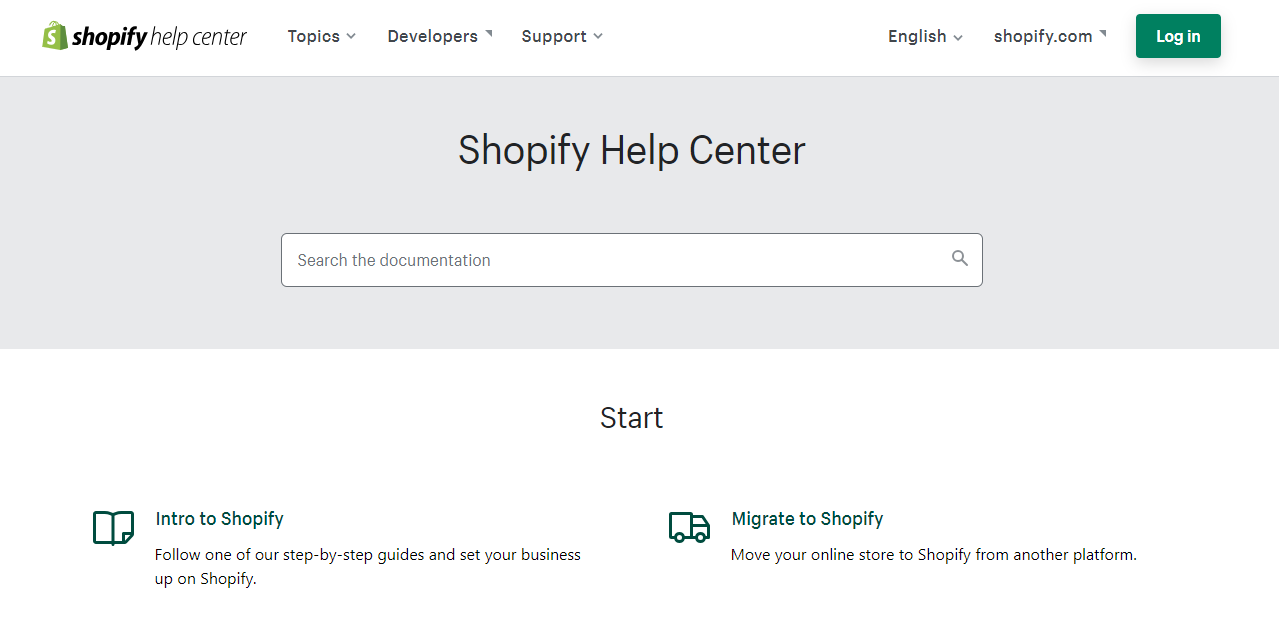
One of Shopify's strongest points is its robust, 24/7 customer service. Regardless of the time zone or hour, Shopify merchants can contact the support team via email, phone, and live chat. The latter is an outstanding feature that significantly reduces waiting times and helps users swiftly resolve any issues that may arise. This uninterrupted, immediate help can be a godsend for online businesses, as any downtime or dysfunctionality could translate into lost sales and unhappy customers.
Additionally, Shopify is not just about resolving current issues; it provides users with resources to grow and learn. The Shopify Forum is a testament to this philosophy. This platform connects merchants worldwide, allowing them to exchange experiences, share advice, and get expert assistance. The forum nurtures a rich community where novices can learn from seasoned veterans, and even seasoned veterans can find new perspectives and ideas.
* Wix:
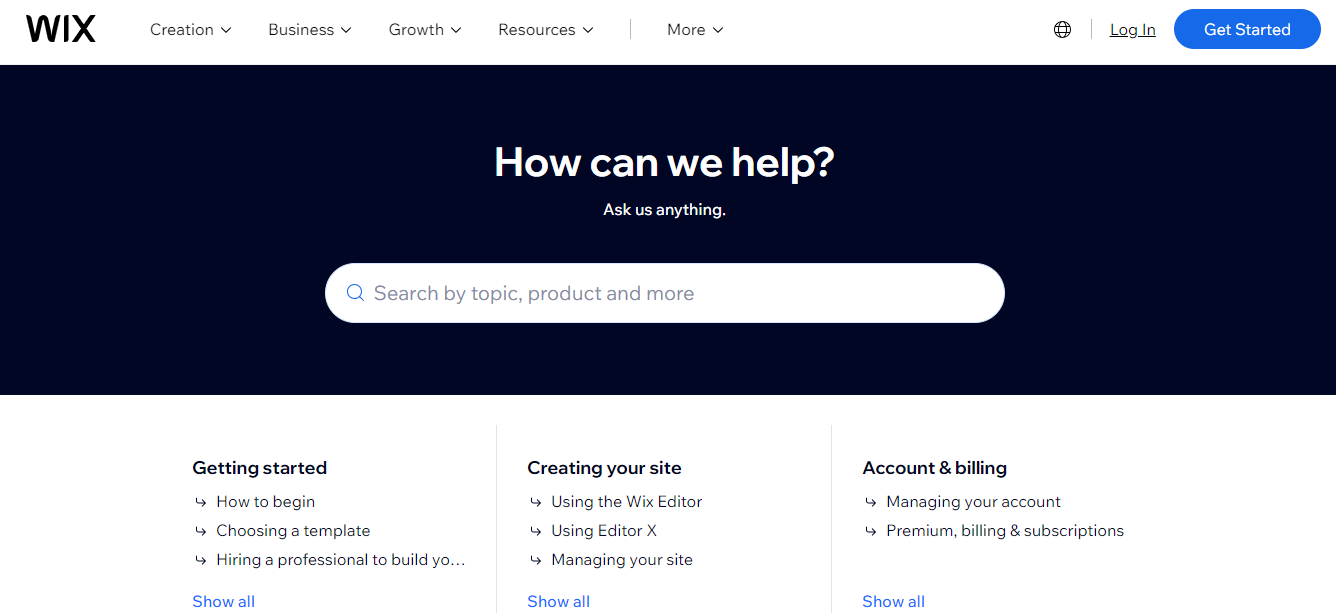
Wix brings a different approach to user support, focusing heavily on educational resources. It has created an impressive array of instructional videos that are easily accessible within the platform. By hovering your mouse over the editor’s question marks, users can find quick answers to common questions, making the platform user-friendly and straightforward.
As for direct human support, Wix offers the option to submit tickets and request callbacks. The English support line is open round the clock, making it readily available for users who prefer to speak directly with a representative. However, if you require support in a language other than English, the availability is restricted to business hours only. This includes languages like French, German, Italian, Japanese, Portuguese, Russian, and Spanish.
Multilingual capabilities
|
Shopify |
Wix |
|
|
Languages |
Multilingual capabilities with up to 5 languages for basic plans and 20 languages for Shopify Plus. Uses CSV files or third-party apps for translations. |
Supports over 100 languages through the Wix Multilingual app. Easy translation and switching between languages. |
|
multi-currencies |
Supports 133 currencies worldwide but requires setting up Shopify Payment and a currency collector on the current theme. |
Currently, does not support multiple currencies. |
|
Tax Calculation |
Uses default sales tax rates and can automate common tax calculations. Does not file or remit taxes; merchants must register with tax authorities. Provides ample documentation to help with tax setup. |
Allows enabling and disabling of taxes. Uses Avalara for real-time tax rate calculation. |
Security
ECommerce operations hinge on the foundation of robust security measures. Online businesses must protect their customers' information and transactions from the myriad of potential cyber threats. Both Wix and Shopify, being SaaS platforms, recognize this critical need and have invested heavily in security infrastructure and protocols. The following comparison sheds light on the security measures each platform offers.
* Shopify Security:
Shopify provides comprehensive, top-tier security features that are automatically updated and maintained in the background, sparing merchants from the daunting task of staying ahead of potential cyber threats. Shopify operates on a Level 1 PCI-compliant server, a mandatory certification for accepting credit and debit card information, ensuring that all transactions are securely handled.
Every Shopify site is also protected by 256-bit SSL encryption, a secure standard that safeguards visitors' data from being intercepted or tampered with.
Additionally, Shopify is proactive in assessing and demonstrating the reliability of its security systems. The platform provides SOC (Service Organization Control) and Transparency reports, carried out by independent third-party auditors. These reports offer an in-depth assessment of the security and availability of Shopify's services, assuring merchants that they meet the industry's high standards for data protection.
* Wix Security:
Wix prides itself on the high level of security integrated into each website created on its platform. Like Shopify, Wix also ensures SSL web security, providing a secure and private connection via HTTPS. This encryption standard secures any data transferred between the website and its visitors, instilling trust in customers that their information is safe.
Additionally, Wix also operates on a Level 1 PCI Compliant system, guaranteeing the secure handling of card transactions. The platform further bolsters its security with TLS 1.2 (Transport Layer Security), providing the highest level of payment security standards and ensuring the utmost safety of visitor transactions.
Wix goes the extra mile with extensive hacker testing and DDoS Protection, keeping your website operational and resilient to cyberattacks. Moreover, as a centralized SaaS solution, all security updates on Wix are automatically applied to your website, ensuring you always have the latest and most robust security measures in place.
Wix and Shopify: Which is better?
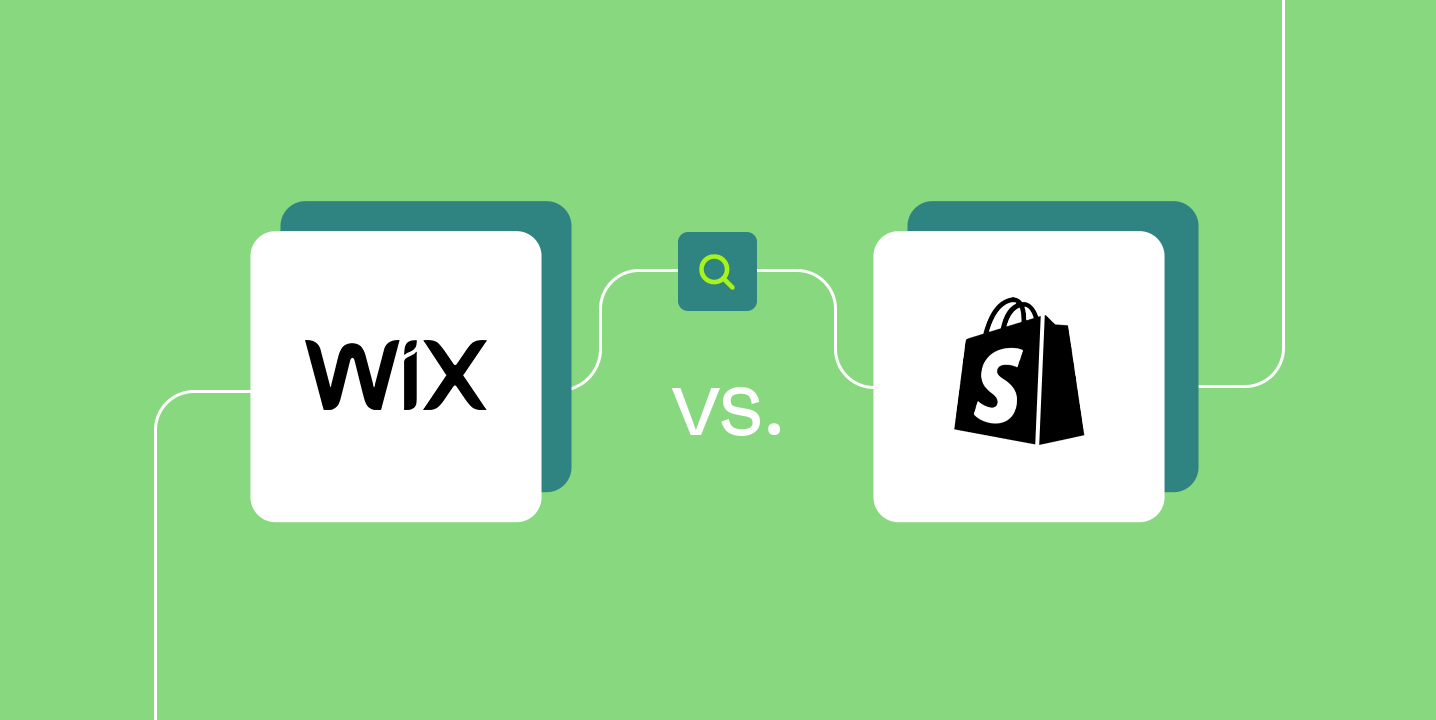
The comparison between Wix vs. Shopify is hard to end up with a winner in every aspect. Therefore, we have made a pros and cons analysis of these two platforms for you to have the most objective view and make the most suitable choice for your business.
|
Pros |
Cons |
|
|
Shopify |
- Specializes in e-commerce with a wide array of customization tools. - Numerous templates and ways to customize them. - Built-in payment processor and compatibility with over 100 payment providers. - Multiple plans dedicated to e-commerce. |
- More expensive compared to GoDaddy. - Setting up the store can take longer due to numerous features. - Charges transaction fees if you use payment methods other than Shopify Payments. |
|
Wix |
- Offers lower-cost plans, making it a more affordable option for those just starting. - The drag-and-drop builder is user-friendly and ideal for those with limited technical knowledge. - Offers a wider range of templates, perfect for building a general-purpose website. - Wix has robust SEO tools to help your site rank higher in search engine results. |
- Compared to Shopify, Wix is less strong in terms of eCommerce features. - Wix websites may load slower than those built on Shopify, potentially affecting user experience. |
FAQs
1. Are Wix and Shopify themes mobile responsive?
Yes, both Wix and Shopify themes are mobile responsive. Wix offers over 800 templates with eCommerce capabilities that adapt well to different screen sizes. Similarly, Shopify provides 12 free themes and more than 100 paid options, all of which are designed to be mobile responsive. This ensures that your online store will maintain a visually pleasing and user-friendly layout on any device.
2. Can I code on Shopify and Wix?
Yes, you certainly can. Shopify uses its own template language, Liquid, which allows for advanced customization of its themes. Similarly, Wix offers access to its code through Wix's editor, enabling users to make significant changes to its templates. Thus, both platforms support coding for advanced customization.
3. Do Wix and Shopify have discount functionality?
Yes, both Wix and Shopify provide the functionality to create discount codes. Wix allows for the creation of discounts in terms of a specific amount of money. On the other hand, Shopify offers more flexibility by permitting discounts to be created as a percentage, providing a slightly more advanced discount functionality.
4. Can I sell products on Wix?
Yes, you can sell products on Wix. While it's possible to create your online store on Wix for free, in order to sell products, you'll need to upgrade to one of Wix's three eCommerce plans. These are the Basic plan ($27/month), the Unlimited plan ($32/month), and the VIP plan ($59/month).
5. Is Shopify cheaper than Wix?
No, Shopify is cheaper than Wix. The least expensive monthly plan for an eCommerce site on Wix starts at $17/month, whereas Shopify's lowest pricing tier begins at $29/month. Therefore, regarding creating costs, Wix is the more affordable option between the two.
In a nutshell,
Both Wix and Shopify have proven themselves as competent and powerful contenders in the realm of eCommerce platforms. The choice between the two largely depends on your business needs, technical expertise, and budget.
We hope this detailed comparison of Wix and Shopify has provided you with the insights you need to make the right choice. Whichever platform you decide to go with, remember that your eCommerce journey is a marathon, not a sprint.
If you have any questions, contact us via the4.co or chat with us directly via EComposer.
=================
Add EComposer Next generation page builder Here
Follow Us on Facebook
Join Official Community
Open a New Shopify store with Newest Exclusive discounts.




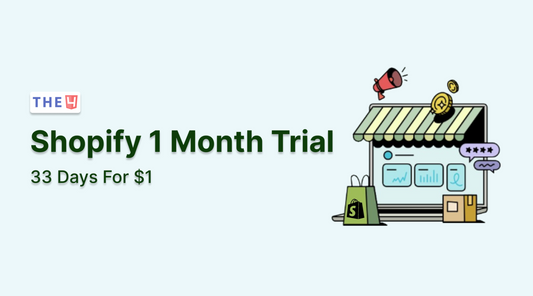
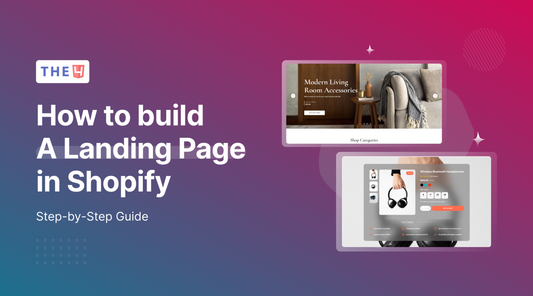
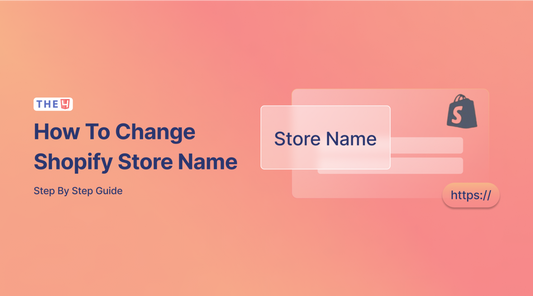


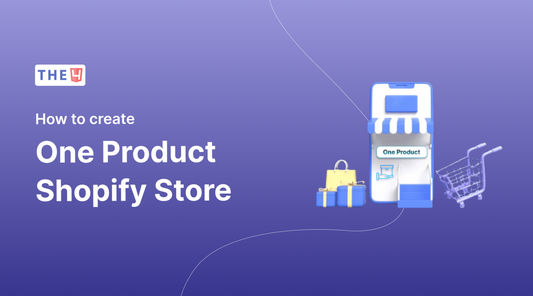
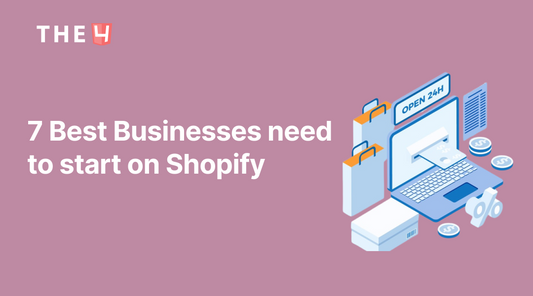


No comments